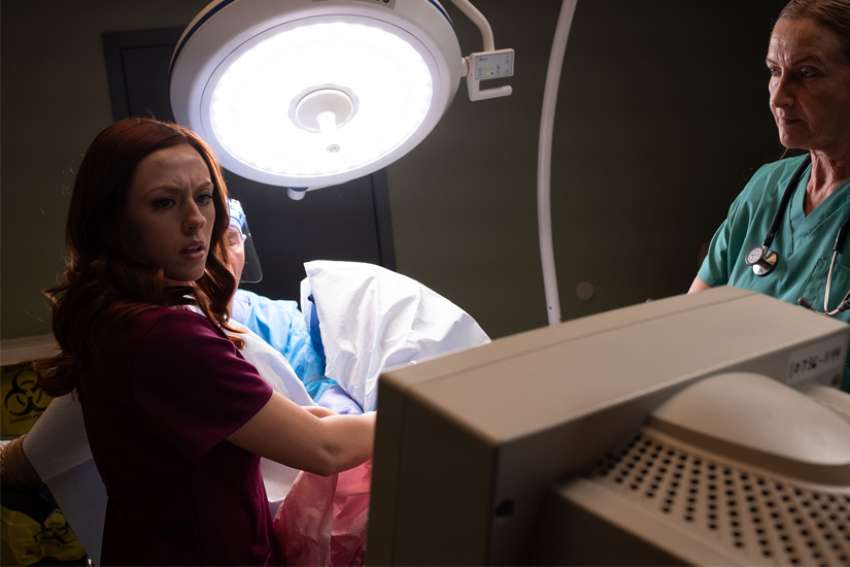The film follows pro-life activist Abby Johnson’s travels from being the youngest clinic director in Planned Parenthood history to becoming a leading voice in defending the pre-born. It focuses on her early professional and personal story, beginning with her start as a student volunteer. It goes on to explore the tumultuous journey towards healing stemming from her own two abortions, which are graphically shown on screen.
The movie’s release in early 2019 caused much controversy in the public square. It is the first feature film to graphically depict an abortion and gives a first-hand account from a former abortionist of how the industry operates. In a letter to parents on the website of the And Then There Were None, a non-profit for abortion workers leaving the industry, Johnson addresses the concern of showing the movie to children in response to its R-rating, which is definitely worth a read.
Unsurprisingly, upon the film’s release Planned Parenthood defended its operations and in a statement said “the movie promotes many falsehoods including, most importantly, distortions and incorrect depictions about health care.”
Unplanned was also met with disgust by critics and almost universally panned.
Turn, then, to Never, Rarely, Sometimes, Always, the 2020 film of which Planned Parenthood was a collaborator. Despite the opportunity to prove Unplanned’s “falsehoods,” it fails to do so. Yet Never, Rarely, Sometimes, Always has been the recipient of numerous accolades, with critics defending and praising abortion and Planned Parenthood.
The storyline focuses on Autumn, who travels to New York in order to have an abortion. The purpose of the film’s name is revealed when she reluctantly admits to her experience of physical, emotional and sexual trauma, which is nothing short of vast and abusive.
One cannot help but feel sorrow for Autumn and her difficult circumstances, as well as other such young women. One also cannot ignore that, unlike Unplanned, throughout the procedure, the camera pans away or cuts to a different shot to deny viewers any sight of the fate which awaits the pre-born child.
The film ends with Autumn boarding a bus back home, where one can only assume that a pattern of abuse still awaits her, that a police report has not been filed out against the perpetrator(s) and that her living situation does not improve. It is mostly what is not seen in the film that makes it such a sham.
The most graphic imagery one would see in this film is in the sonogram Autumn receives at a pregnancy care centre and coincidentally when one of the workers shows her the Center for Bio-Ethical Reform’s video Hard Truth. This footage includes images of healthy babies inside the womb, as well as abortion victim photography. Purposefully, the camera cuts to a different scene just as the latter is about to be shown.
Pro-lifers and pro-abortionists can agree on one thing — abortion is not something that we can remain silent about. Abortion is not some minor sub plot in these films, as it has been in most forms of entertainment.
Despite their differences though, both films bring us into the suffering and brokenness of two young, vulnerable women who have been used and abused by the people in their lives, with abortion presented as the solution to problems.
And both films show us the stark reality of how the pre-born are treated.
(Timson, 22, is a Communications Media student at John Paul the Great Catholic University in Escondido, Calif.)


